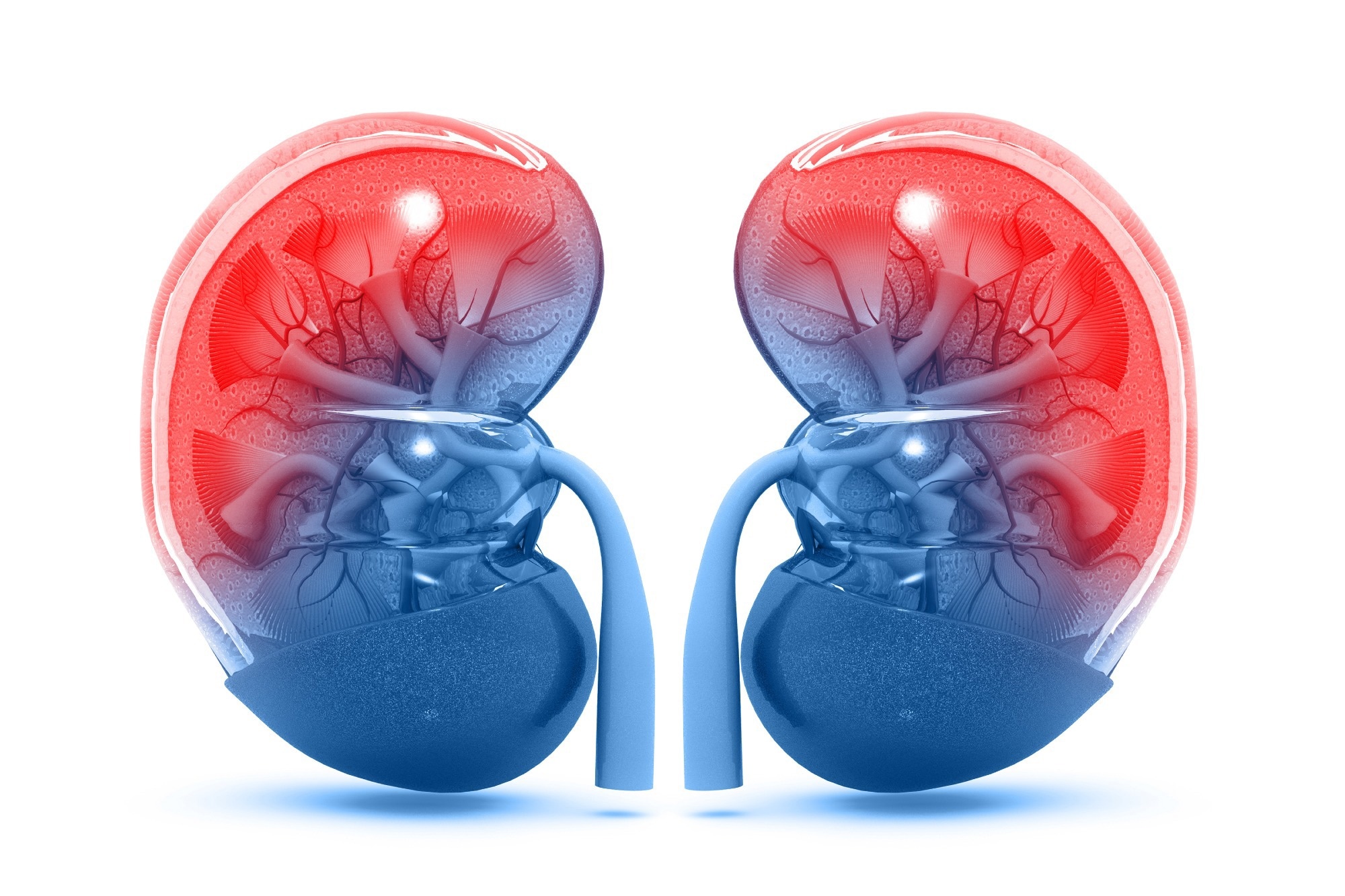In a recent study published in JAMA, researchers compare the outcomes of kidney transplants, in which the kidneys were from deceased donors who had or had not undergone dialysis.
Study: Kidney Transplant Outcomes From Deceased Donors Who Received Dialysis. Image Credit: crystal light / Shutterstock.com
Can injured kidneys be used for tranplants?
The waiting list for a kidney in the United States currently has close to 90,000 individuals, with studies reporting that less than 20,000 individuals receive kidneys from deceased donors every year.
The traumatic incidents that lead to the death of the donor, terminal hospitalizations causing nephrotoxic damage, and inflammatory cascades that follow brain death often result in acute kidney injury. As a result, concerns about the adequate recovery of kidneys from these injuries before transplantation typically leads to their disposal.
However, studies have found that the risk of graft failure is similar in cases where kidneys were obtained from deceased donors with or without acute kidney injury. These observations have almost doubled the use of kidneys from deceased donors with acute kidney injury.
Nevertheless, continued concerns about the outcomes related to kidneys obtained from deceased donors with acute kidney injury who underwent dialysis has led to about 44% of these kidneys not being used for transplants.
About the study
In the present study, researchers determine whether the transplantation of kidneys obtained from deceased donors who had undergone dialysis before donation had worse outcomes as compared to the transplantation of kidneys from matched donors with no history of dialysis before being deceased.
To this end, data on deceased donors who had undergone dialysis before organ donation between 2010 and 2018 were obtained. Deceased donors above the age of 16 years who donated kidneys, had three measurements of serum creatinine during hospitalization, and donated each kidney to a different recipient were included in the study.
Medical records were used to ascertain whether the donor underwent dialysis during their final hospitalization, the mode and duration of dialysis, as well as the reason for dialysis, such as acute kidney injury, methanol or ethylene glycol intoxication, or due to medication.
Age, sex, and race-matched deceased donors who did not undergo dialysis before kidney donation were also included in the study. Other factors that deceased donors were matched for included body mass index (BMI), diabetes, glomerular filtration rate (GFR) estimates, hypertension, cardiac death before donation, stroke, presence of antibodies against hepatitis C, and the transplantation year.
Follow-up data on kidney recipients were examined for short- and long-term outcomes, the former consisting of delayed graft function. Importantly, graft function is an outcome that determines factors such as length of hospitalization, costs, and risk of adverse outcomes.
Long-term outcomes that were assessed included GFR estimates at six and 12 months following the transplant, longitudinal decline in estimated GFRs, all-cause graft failure, and death.
Serum creatinine values were used to calculate the estimated GFRs at six and 12 months from transplantation, as well as the longitudinal decline in these rates. All outcomes were presented as incidence rates and cumulative incidence. Subgroup analyses were also conducted based on modalities and duration of dialysis.
Study findings
Receiving a kidney from a deceased donor who had undergone dialysis before the donation of the organ was associated with a higher probability of delayed graft function. However, the deceased donor having undergone dialysis did not have a significant impact on long-term outcomes, such as graft failure or death.
The risk of delayed graft function was six times higher when the kidney was donated by a deceased donor who had undergone dialysis due to acute kidney injury before organ donation than when the kidney was donated by a deceased donor who had not undergone dialysis. Therefore, kidneys from deceased donors who underwent dialysis should be considered for recipients who are otherwise healthy enough to tolerate the multiple hemodialysis sessions that might be required in case of delayed graft function.
There was a lack of standardized reporting of dialysis events before organ donation, with varying terminologies and free text being used. This could complicate clinical decision-making and impact the availability of usable kidneys. Thus, standardized reporting of donor dialysis information is crucial and should include the reason, duration, and modality of dialysis treatment to improve decision-making processes.
Conclusions
The study findings indicate that kidney transplants from deceased donors who had undergone dialysis due to acute kidney injury prior to organ donation were associated with an increased risk of delayed graft function. However, these kidney donations were not associated with long-term adverse outcomes such as graft failure or death.
Journal reference:
- Wen, Y., Mansour, S. G., Srialluri, N., et al. (2024). Kidney Transplant Outcomes From Deceased Donors Who Received Dialysis. JAMA. doi:10.1001/jama.2024.8469








